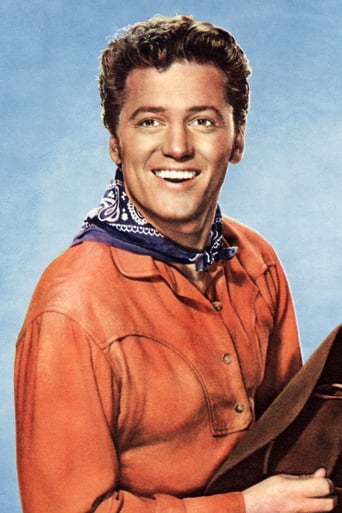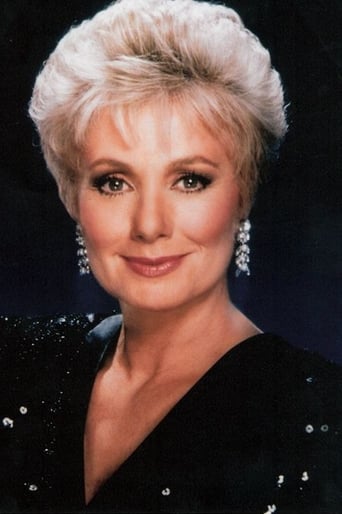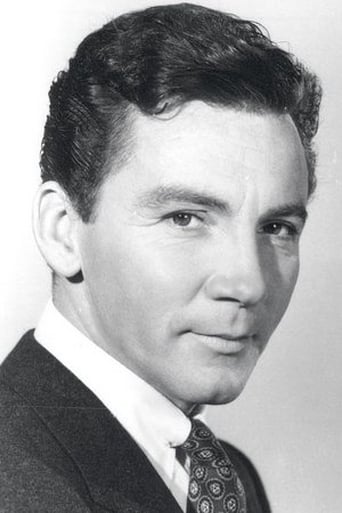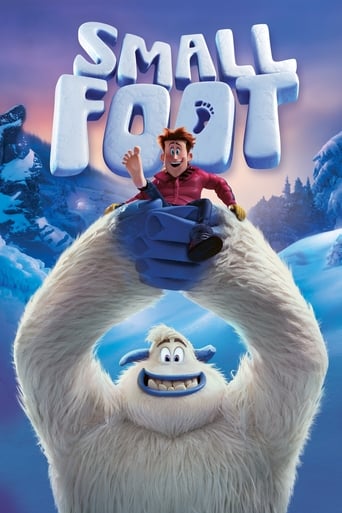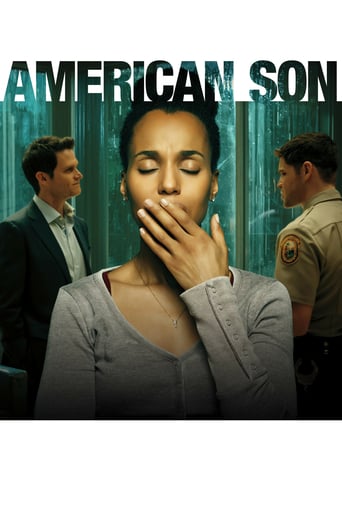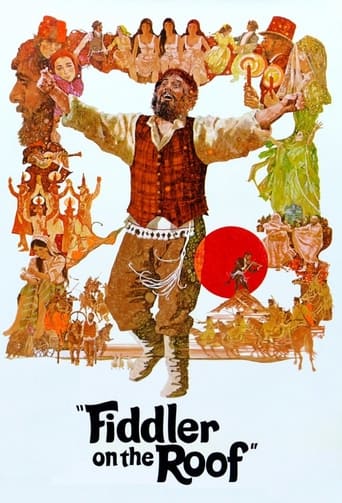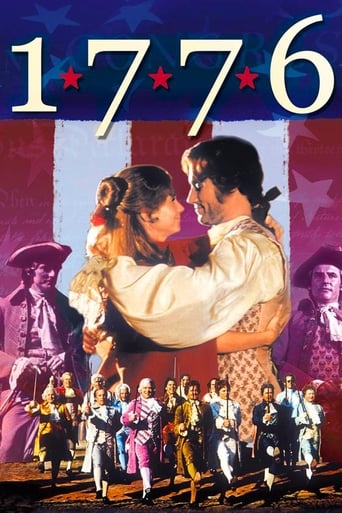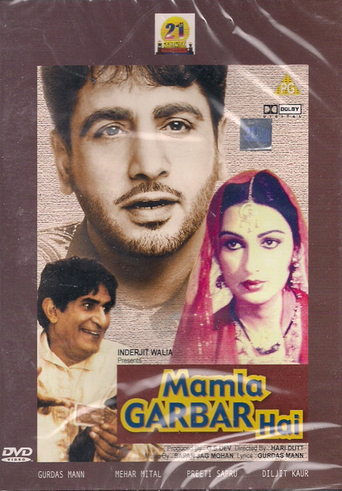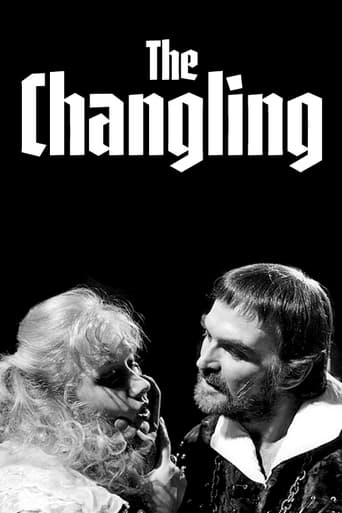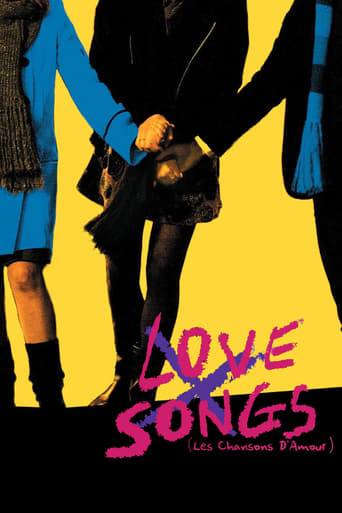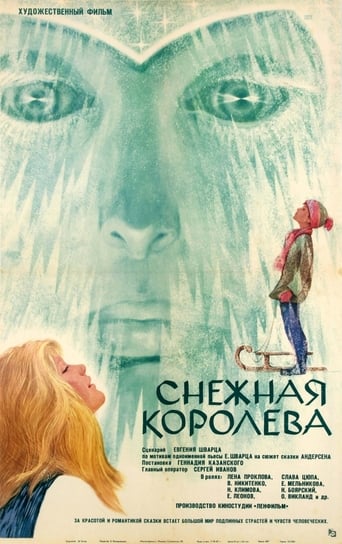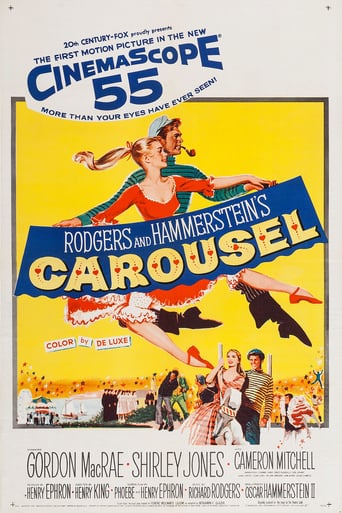
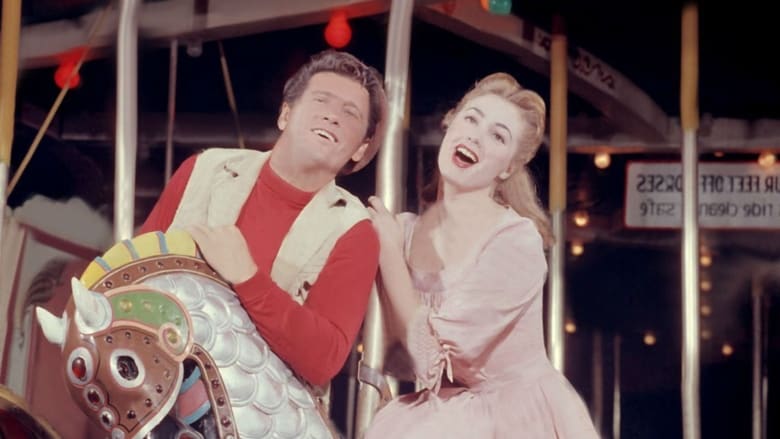
Carousel (1956)
Billy Bigelow has been dead for 15 years. Now outside the pearly gates, he long ago waived his right to go back to Earth for a day. He has heard that there is a problem with his family: namely with his wife Julie Bigelow, née Jordan, and his child he hasn't met. He would now like to head back to Earth to assist in rectifying the problem; but before he may go, he has to get permission from the gatekeeper by telling him his story. Adapted from the Rodgers and Hammerstein hit Broadway musical.
Watch Trailer
Cast
Similar titles
Reviews
Let me be very fair here, this is not the best movie in my opinion. But, this movie is fun, it has purpose and is very enjoyable to watch.
There are moments in this movie where the great movie it could've been peek out... They're fleeting, here, but they're worth savoring, and they happen often enough to make it worth your while.
what a terribly boring film. I'm sorry but this is absolutely not deserving of best picture and will be forgotten quickly. Entertaining and engaging cinema? No. Nothing performances with flat faces and mistaking silence for subtlety.
Actress is magnificent and exudes a hypnotic screen presence in this affecting drama.
Copyright 1956 by 20th Century-Fox Film Corp. New York opening at the Roxy: 16 February 1956. U.S. release: February 1956. U.K. release: 21 May 1956. Australian release: 4 June 1956. Sydney opening at the Regent. 11,561 feet. 128 minutes.SYNOPSIS: The daughter of a carousel barker is ostracized by other children in a New England town at the turn of the century. NOTES: Second to "The King and I" as Fox's top-grossing domestic release of 1955-56. Fox's top box-office money-maker in Australia in 1956. Originally it was planned to shoot Fox's 49th CinemaScope movie in both 55mm CinemaScope and standard 35mm CinemaScope. Frank Sinatra, who had been signed for the part of Billy Bigelow (over the strenuous objections of Rodgers and Hammerstein), balked at making a print of every scene twice ("Everyone knows I've only got one good take in me!") and walked out. After MacRae had been signed, it was decided to shoot each scene on 55mm stock only and optically reduce to 35mm in the laboratory. The studio had intended to make 55mm projection prints available for roadshow engagements, but no cinema was prepared to pay the expense of re-equipping. So the movie was shown in 35mm CinemaScope everywhere. COMMENT: The lovely Shirley Jones is absolutely perfect as the vulnerable Julie, while critics with considerable justification predicted a big future for Barbara Ruick. (In fact she had no future in movies at all. This was her fifth and last film). Robert Rounseville, who had made his picture debut in Tales of Hoffmann (1951) was also deservedly praised, but he made no more pictures either. This was the only movie Claramae Turner ever made, but audiences were lucky enough to glimpse the entrancing Susan Luckey again in The Music Man (1962). The superlative dancing of Jacques D'Amboise was first seen in Seven Brides for Seven Brothers. After this spectacular follow-up, Producer Henry Ephron signed him for The Best Things In Life Are Free, a somewhat disillusioning experience which soured D'Amboise from Hollywood forever — except for the 1967 A Midsummer Night's Dream.Yes, everyone else is so great — Audrey Christie as the jealous Mrs. Mullin whose relationship with Billy is so cleverly conveyed by her gestures as well as her reactive words; Gene Lockhart in one of his last roles as the philosophical doctor/starkeeper; Cameron Mitchell, judiciously cast for once as the truly repulsive Jigger; John Dehner as a patronizing local moneybags; Richard Deacon as an obsequious policeman — it's a shame MacRae is so lackluster. Mind you, as said, King's sluggish, very loosely-framed direction does little to assist. Nor does Ephron's unnecessarily verbose script.Despite its shortcomings, "Carousel" is still a wonderfully uplifting musical experience. Rodgers' music is at its most haunting, most tuneful, most electric. Hammerstein's lyrics are perhaps at times a little too smart-alecky. The most impressively unforgettable numbers are the two dance set-pieces: "June Is Bustin' Out All Over" and "Louise's Ballet". Really zestful choreography, really expressive dancing make these numbers truly outstanding cinema pleasures.
This is the story of a man who did nothing while on earth. After he dies, he gets a chance to have some time back in the world. While there, he falls in love and begins to make a difference. He is beset by the reality of what he wasted. When the songs come, they show us the longing and the strength of faith. Of course, this is the source of the song "You'll Never Walk Alone" and "If I Loved You." Because it didn't have broad appeal, this movie was never given its due. As a young child, I hated musicals, but when i saw this I began to cry. The sadness of a life wasted is overwhelmed by the "fact" that there is something better if we wait. Recently, Orchestras have begun to have sing a longs in celebration of this work.
I'm having a hard time understanding all the positive reviews on this movie. Was the musical supposed to be a tragedy and I just didn't get it? Was I supposed to sympathize with the characters in any way whatsoever? Did it have anything more than drivel to say about love or redemption? I can't think of any positive answers to those questions.Begin with a girl who falls in love with a total bum because he puffs out his chest a lot, a loser who makes no secret of his utter lack of respect for women. Throughout the song, "If I Loved You" (which was a nice song, btw, if removed from its context) I couldn't get her stupidity out of my head. Next a marriage where the guy treats her with utter disdain and abuse, and somehow she still loves him, even though he has yet to show a single redeeming quality in the movie.When he finds out she is pregnant he actually pauses for reflection on his life. During "Soliloquy" I thought perhaps this would be the beginning of a redemption story. Alas, he turns to crime and gets himself killed. When in heaven (or whatever it is) he puffs out his chest again and declares that he won't apologize for anything at all. This is one of the most awful characters I have ever seen.So finally he is given a chance to go back and make things right for his now-grown daughter (and needs to be brow-beaten into taking that chance, btw), how does he do it? First he ends up slapping her, which apparently brings fond memories for her mother. "It is possible, dear," she says, with wistful smiles on both their faces, "for someone to hit you, hit you hard, and it not hurt at all." What?? The ghostly bum then goes to his daughter's graduation and whispers into her ear to believe the graduation speech, then walks away self-satisfied. Oh job well-done, man!One reviewer said that the characters had emotional maturity of five-year-olds, and this hit the nail on the head for me. There was nothing redeeming about them, except perhaps that the wife - like me watching this film - patiently suffers and the complete loser of a husband never cheats on her as far as we can see. Was this supposed to be a love story? I don't get it.The music was good, though, and because of that I regretfully gave the movie as high as a 3-star rating.
First, I've got to get something off my chest. I was reading in the discussion section the thread entitled "This film is an atrocity". Some of the dumbest comments I've ever read on IMDb. We have some reviewers who can't differentiate between "I didn't like this film" and "This is a horrible film". There is a difference. I personally can't stand opera, but that doesn't mean that I don't recognize its beauty and the talent it takes to perform one. And in fact, that's one of the things some of our reviewers don't get...more than some musicals, this film is -- in a sense -- an opera.Second, thank god that Frank Sinatra walked away from this film. First, it would have been type casting. But second, he was all wrong -- including physically wrong -- for the part of Billy Bigelow. Having said that, I see Sinatra's Reprise recording of "Soliloquy" to be the definitive recording of the song.Now, more directly to the film. I can see why modern audiences might not enjoy this film. It has a slow pace in a few places. Some of the modern interpretive dance, which really is quite good, might not appeal to many. And, the film excuses hitting women.On the other hand, when you think about it, the film tackles more substance than musicals often do. The plot is a little thin, but that's so you can fit in the music. And the music here is truly notable: "Soliloquy", "If I Loved You", and the stunning "You'll Never Walk Alone" (although I was a bit disappointed with the orchestral arrangement here, particularly in the first appearance of the song).Shirley Jones's performance was -- once again -- virtually flawless. It's a travesty that her type of film virtually disappeared from movie screens, relegating much of her later career to weak films, few of which are notable.Gordon MacRae is excellent here, and I say that as no fan of his.Claramae Turner's part gets little screen time, but her nearly-operatic performance of "You'll Never Walk Alone" is timeless. Cameron Mitchell...well, I never quite saw what Hollywood saw in him...and still don't. Gene Lockhart is worth mentioning here. He was a character actor with a long and substantial career, and this movie was filmed just about a year before his death, although he performed in 2 films after this, including "The Man in the Gray Flannel Suit".All in all, despite what some of our reviewers have written, this is a significant film, though it may not be entertaining to modern audiences. It will be remembered more for several of its musical pieces, rather than for its plot. I'm glad I finally watched it -- once -- but I probably will not view it again. That era has passed, and personally I don't feel this is the best of the Rodgers and Hammerstein musicals. However, still recommended from an historical point of view in film history.
